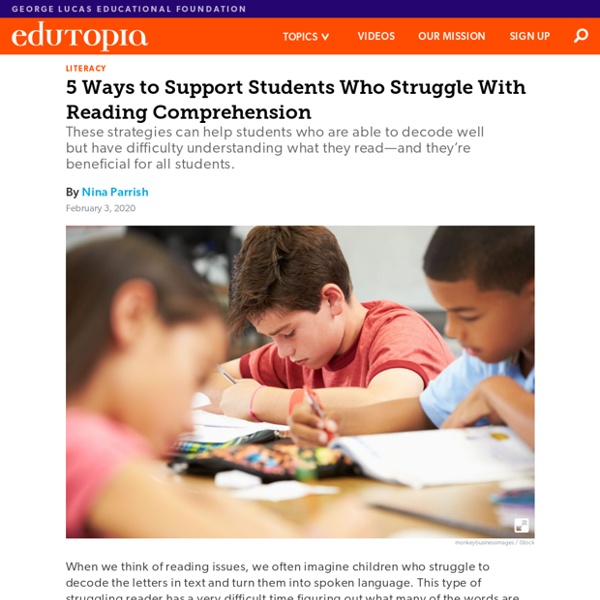5 Ways to Support Students Who Struggle With Reading Comprehension

https://www.edutopia.org/article/5-ways-support-students-who-struggle-reading-comprehension
Related: Learning & Teaching 2018
• Methods: Reading and Writing
• TEP 521/SPED 525- Methods of Teaching Reading and Writing
Spelling: In Depth
Learn about the different stages young children go through in developing their spelling skills and how phonetic or "invented" spelling can play an important role in helping children learn how to write. Children advance through identifiable stages in their development as spellers. These stages have been described by several different researchers but all derived from the research of Charles Read and Edmund Henderson in 1971.
Differentiated Instruction for English Language Learners
Each student comes to school, not only with unique academic needs, but also with unique background experiences, culture, language, personality, interests, and attitudes toward learning. Effective teachers recognize that all of these factors affect how students learn in the classroom, and they adjust, or differentiate, their instruction to meet students' needs. Getting Started Tomlinson and Imbeau (2010) describe differentiation as creating a balance between academic content and students' individual needs. They suggest that this balance is achieved by modifying four specific elements related to curriculum: Content — the information and skills that students need to learnProcess — how students make sense of the content being taughtProduct — how students demonstrate what they have learnedAffect — the feelings and attitudes that affect students' learning
Thematic Units
Related:



